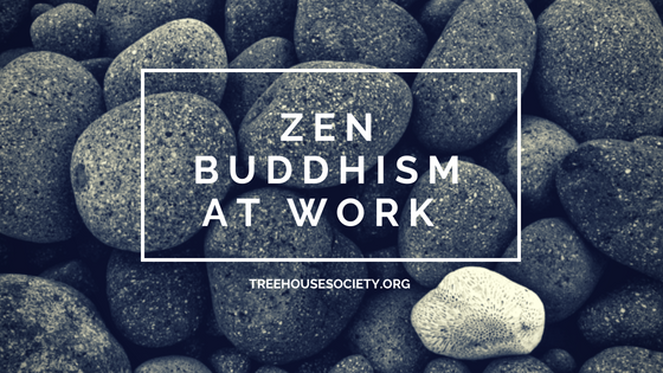|
Zen Buddhism is usually known as a Japanese school of Mahayana Buddhism emphasizing the value of meditation and intuition. However, Zen Buddhism dates back to 6th century. An Indian monk named Bodhidharma brought Buddhism to China and it was soon adapted by the Taoists at the time. Taoists used the Buddhism techniques to enhance meditation, and they formed a branch of Buddhism called Chan Buddhism. It then became popular and spread south to Vietnam, northeast to Korea, and to Japan. It then became popular in the West in the mid 20th century.
Zen Buddhism emphasizes rigorous self-control, meditation practice, and insight into Buddha-nature. It is a very pragmatic practice, not a theory or dogma. Instead of finding something exterior to fulfill the spiritual needs for self, it seeks internally. Steve Jobs is a very well known entrepreneur who practices Zen Buddhism. As he stated in his autobiography written by Isaacson, “Follow your heart and your intuition. They somehow already know what you truly want to become.” Although some might think that spirituality and business should be combined together, the combination makes sense. Spirituality and work both play an important role in people’s lives and the ancient wisdom from Zen Buddhism can really make a difference in people’s attitude toward work. There are eightfold paths to Zen Buddhism, and they could be translated to business practices. The eight paths are right view, right resolve, right speech, right conduct, right livelihood, right effort, right mindfulness, and right samadhi(concentration). 1. Right view This is to state that our actions have consequences. At a workplace, our actions could result in unintended consequences, so we must reflect before we act. 2. Right resolve This is to move away from cruelty and to move into living kindness. In business, sometimes if we let things go and be less cruel, it could help to break barriers with potential customers and bring us new opportunities. 3. Right speech No gossips, no lying, and no rude speech, which is useful in business. In a work environment, one should only speak with truth, kindness, and compassion. 4. Right conduct Of course, one should not steal, lie, and be deceitful while working or managing a team. 5. Right livelihood This is a concept related to minimalism and to possess what is essential to sustain life. All the extra frills at work could be deemed frivolous. 6. Right effort If we do everything with kindness and compassion and guard against sensual thoughts, that is the right effort at work. 7. Right mindfulness Being conscious in everything you do is very important. In this ever connected world, being mindful with everything you do could be difficult, which is why meditation can help with this. 8. Right samadhi(concentration) This is to reflect on all the actions practiced with the ideas of Zen Buddhism in mind. The best way to do that would be to meditate. The best thing about Zen Buddhism is that it is just a practice and that there are no right answers on whether or not we are practicing correct. However, with the lengthened periods of practice, we could see results not only in our work lives, but also our personal lives.
1 Comment
Johnathan
8/6/2018 08:11:22 pm
This practice might really help me to overcome my very unproductive working style. I should definitely try this out.
Reply
Leave a Reply. |
Categories
All
|




